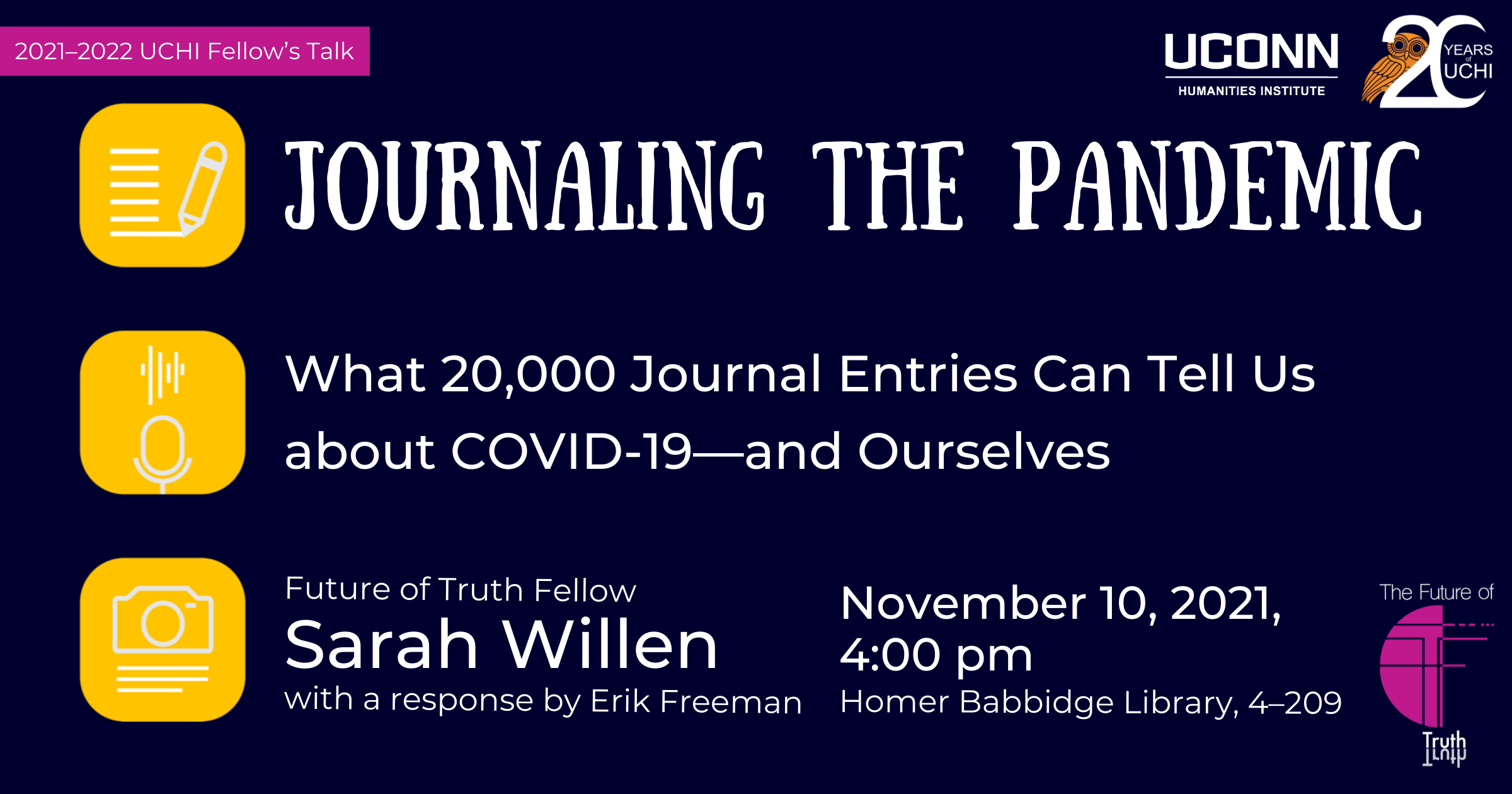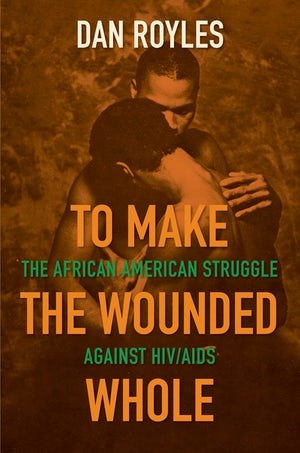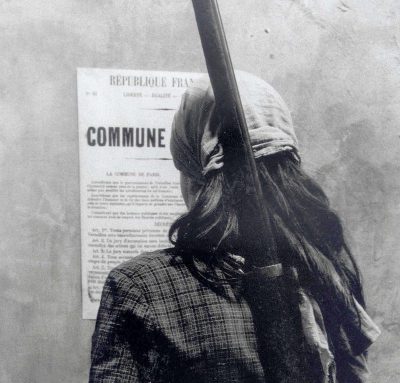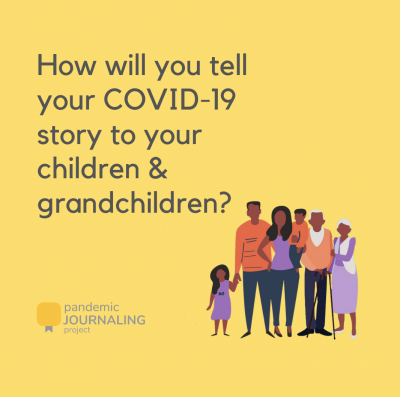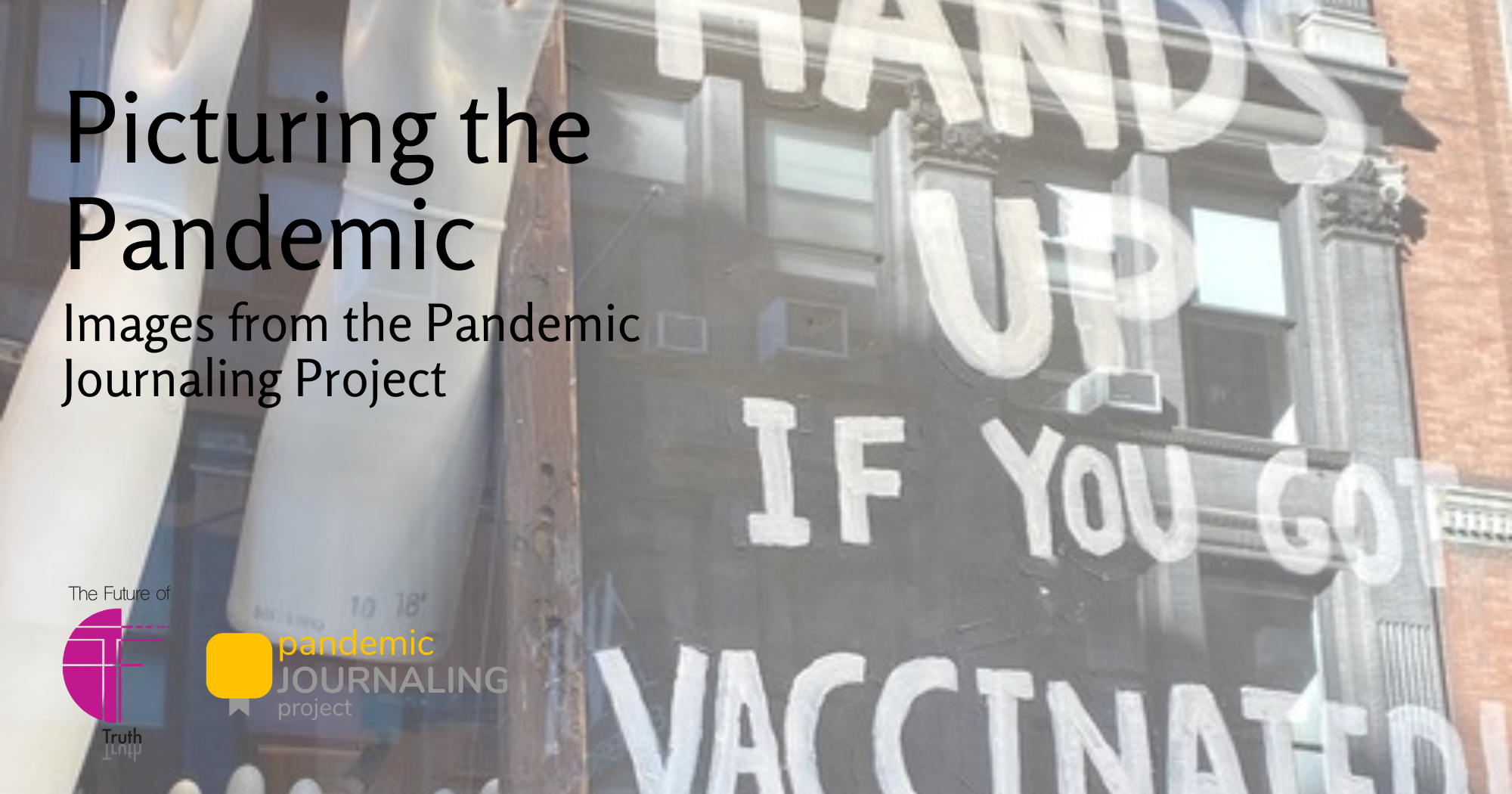
Exhibition Opening
Thursday, October 27th 5–7 p.m.
Downtown Library in Hartford
Register
Hartford Public Library and UConn are excited to host an opening reception for “Picturing the Pandemic: Images from the Pandemic Journaling Project,” the first public exhibition of photos and journal entries collected by the team at the Pandemic Journaling Project detailing the experience of ordinary people during COVID-19. Speakers include Hartford Mayor Luke Bronin; UConn President Radenka Maric; Jasmin Agosto, education and community outreach manager, Hartford Public Library; Michael Lynch, director of UConn’s Humanities Institute; Kathryn Libal, director of UConn’s Human Rights Institute; Ty Hughey, executive director of Haddam-Killingworth Youth and Family Services; Melina Das, 10th grader, Wethersfield High School; and UConn faculty and Picturing the Pandemic Co-Curators Alexis Boylan & Sarah Willen
Since its launch in May 2020, the Pandemic Journaling Project has given ordinary people a place to chronicle and preserve their pandemic experiences. Over the following two years, more than 1,800 people in 55 countries created nearly 27,000 individual journal entries—for themselves, and for the history books.
“After collecting photographs, audio recordings and written journal entries from people around the world for two and a half years, we’re honored and thrilled to be partnering with the Hartford Public Library in launching what we think is a quite unusual exhibition,” said Sarah S. Willen, co-founder of PJP and co-curator, together with fellow UConn Professor Alexis Boylan, of the exhibition. “Our PJP team often describes PJP as a form of grassroots, collaborative research and history-making. In this exhibition, we’re expanding that mission to show how all of us, no matter our age, background or life stage, can find strength, solidarity and maybe even healing in creative expression and in recording, and sharing, our stories.”
Select submissions from the project will be displayed at Hartford Public Library through December alongside a selection of images from the library’s Hartford 2020 collection, a collection of photographs by Hartford-based photographers Andy Hart, Jasmine Jones, and Ray Shaw that capture Hartford’s public sphere in 2020: protests, parks, buses, testing clinics and outdoor performances.
In addition to journal entries collected digitally, the project hosted a series of in-person programs this summer at Hartford Public Library locations across the city where children were encouraged to create art that captured their thoughts and feelings about how the COVID-19 pandemic has affected their daily lives. Selections from those programs will be displayed in the Children’s Department at the Downtown Library as well as at Hartford Public Library branches across the city.
“A core part of Hartford Public Library’s mission is providing resources to encourage individual exploration, as well as preserving and recording Hartford’s history,” said Hartford Public Library President and CEO Bridget E. Quinn. “We are proud to partner with the team at the Pandemic Journaling Project on this exhibition that not only chronicles a tumultuous time in our collective history, but hopefully sparks conversation about claiming our voices, learning from others and creating meaningful change in the world, as well as inspiring others to share their stories.”
The opening reception at the Downtown Library will include remarks from the exhibition curators, as well as from project participants. Refreshments will be served and guests will be invited to view the exhibition that has been installed throughout the library.
Future public exhibitions of Pandemic Journaling Project materials are planned at Providence Public Library in Rhode Island; the Mark Twain Center for Transatlantic Relations in Heidelberg, Germany; and the Centro de Estudios de Género, el Colegio de México in Mexico City, Mexico.
For more information about the Pandemic Journaling Project visit www.pandemicjournalingproject.org. To register for the event on October 27th visit www.bit.ly/PJPatHPL.
